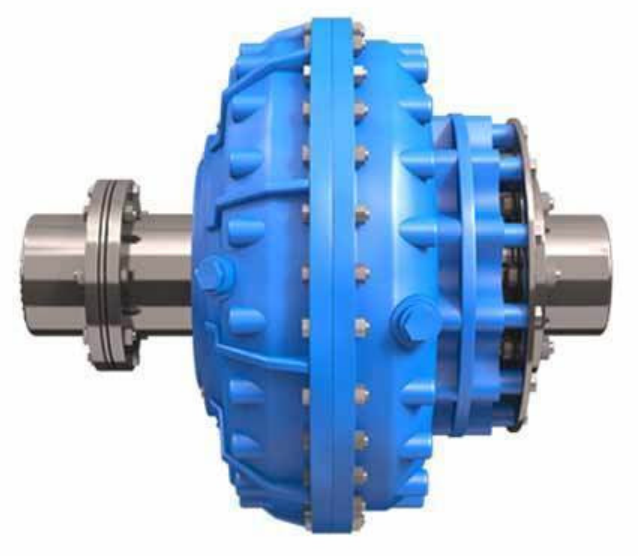In machine technique, fluid coupling is necessary to improve the efficiency of the power transmission system. The unit is designed to transfer the torque between the two shafts, and allows a special degree slip, which can be useful under conditions with even acceleration and recession. Liquid coupling can help reduce the shock load on startups by using hydraulic fluid to transmit current, so it provides milder infections in mechanical systems. Their unusual design not only improves performance but also helps to complete machines. Therefore, they are important to many industrial applications.
How Fluid Couplings Function
A liquid connection moves on hydrodynamic concepts. Placed in a sealing case packed with hydraulic liquid, there are two main parts: powered and turbine. When the drive shaft changes, the impeller rotates, so a centrifugal force is produced that pushes the liquid against the turbine. This movement allows the shaft to be driven by transferring energy from the impeller in the turbine. The design effectively enables even power transmission without mechanical compound, so the component reduces wear and tear and usually produces a more effective system.
Advantages of Fluid Couplings
Fluid couplings are a popular option in many sectors since they provide several benefits in different uses. Their capacity to offer overload protection is one major advantage; should a jam or obstruction occur, the fluid coupling lets the motor or driven equipment be damaged by sliding. By reducing the energy lost during power transmission, they also help to save energy. The smooth operation they give also leads to reduced vibrations, which can boost the operating longevity of connected gear. All things considered, fluid couplings are a great tool for improving system performance and dependability.
Used in Many Sectors
Fluid couplings’ adaptability allows them to be used in a broad spectrum of applications across several sectors. For example, in the mining industry, conveyor systems are frequently used to control large loads and offer smooth functioning. In the manufacturing sector as well, hydraulic couplings are used in equipment like pumps and compressors where progressive acceleration is necessary to avoid mechanical stress. They also have uses in maritime propulsion systems where operational safety depends on their capacity to absorb shock loads. This wide use underlines the need for fluid couplings in contemporary industrial operations.
Best Practices and Maintenance
Although fluid couplings are meant to be low-maintenance, consistent inspections and following best practices are necessary for excellent performance. Regular monitoring of fluid levels and leak detection helps to guarantee the effective running of the system. Using the right kind of hydraulic fluid, as recommended by the manufacturer, helps to avoid problems like overheating or lower efficiency. Regular cleaning of the coupler and its surroundings helps to prevent pollution that could compromise its performance as well. Operators may guarantee the lifetime and dependability of fluid couplings in their systems by following these best practices.
Conclusion
Essential parts that improve the efficiency and dependability of power transmission systems in many different sectors are fluid couplings. Their unusual design provides seamless acceleration, overload prevention, and energy savings, which makes them very useful in sectors from mining to manufacturing. Operators may get the most out of fluid couplings by means of regular maintenance and knowledge of technical developments. These devices will be rather important in enhancing operational performance as industries keep innovating. Visit hzpt.com for additional details on premium industrial components; there, you can discover customized solutions to fit your equipment requirements.

